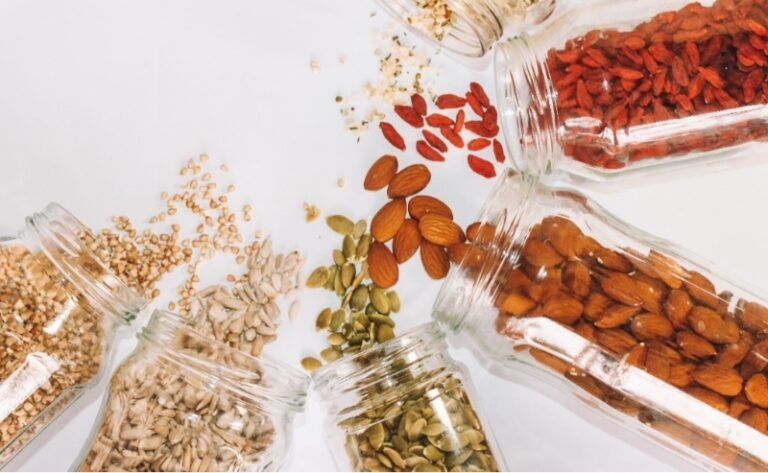The Mediterranean Diet is based on the eating habits of people from Greece, Crete, and Southern Italy. Despite the higher consumption of fat in these Mediterranean countries, the rate of heart disease, obesity, and cancer is low, and not as prevalent as it is in North America. The Mediterranean Diet consists of nourishing fats, whole grains, fish, vegetables, and fruit. There is very little consumption of processed foods and non-fish meat.
What is the Role of Fat in our Bodies?
Healthy fats play many important roles in your body. The consumption of a moderate amount of good fat helps to maintain a healthy immune system, protect brain health, and aid in digestion.
Fatty acids make up our cell walls which, when healthy, let nutrients pass into the cells and waste products out. The membrane is important in the communication between cells and will release fatty acids when the body needs it, such as for growth or dealing with an injury.
When your body experiences any kind of infection, trauma, or stress your cells release fatty acids. If your diet is high in bad fats containing Omega-6 from a high meat and processed food diet then you will be releasing pro-inflammatory fatty acids into your body. Inflammation can lead to arthritis, diabetes type 2, heart disease and many more complications. But, if your diet is high in good fats containing Omega-3, your cells release anti-inflammatory properties.
Our brain is 60% fat and fatty acids are among the most crucial molecules that determine your brain’s integrity and ability to perform. Nutritious fats help to maintain brain function and fight cognitive decline.
Good Fat vs. Bad Fat
Trans fats are a type of unsaturated fat which can be natural or artificial. Artificial trans fats are made from the hydrogenation process, which converts vegetable oils into a semi-solid product. This gives products a longer shelf-life and can enhance the flavour and texture of food. Natural trans fats can be found in small amounts in some meat and dairy products, such as beef, lamb and butter fat.
Trans fats raise your bad (LDL) cholesterol and lower your good (HDL) cholesterol, which can lead to heart disease, stroke, and type-2 diabetes.
The easiest way to lower your intake of trans fat is to avoid processed foods and check the labels! Look out for the usual suspects (anything that contains partially hydrogenated oil) :
- Processed Grain & Seed Oils (corn, soybean, canola)
- Vegetable shortening
- Microwaveable popcorn
- Fried fast food
- Bakery products
- Non-Dairy Coffee Creamers
Here is a list of the core sources of good fats in the Mediterranean Diet which are easy to incorporate into your meals:

Olive Oil
- Good source of monounsaturated fat, which keeps arteries flexible and lowers blood pressure, reducing the risk of cardiovascular events.
- High in antioxidants like polyphenols and vitamin E.
- Helps support absorption of fat-soluble vitamins (A, D, E, and K).
- Great for dressings or used in low to medium-heat cooking
Tip: Look for cold-pressed, extra-virgin oils in dark containers that include a “harvest” date rather than a “best by” date.

Nuts & Seeds
- Almonds, cashews, pine nuts, tahini, pistachios, walnuts, and hazelnuts are good sources of monounsaturated and polyunsaturated fatty acids, protein, magnesium, and iron.
- Very nutritious but high in calories, a good serving size is typically a small handful.
Tip: Store in cool, dark places to protect them from going stale and their oils from oxidizing (going rancid).

Wild Caught Fish & Seafood
- Fatty fish (salmon, herring, mackerel) are good sources of omega-3 fatty acids.
- High in protein and a natural dietary source of vitamin D.
- When caught using responsible methods, wild seafood provides a sustainable source of both heart-healthy fats and protein.
Other good fats that are easy to include in your diet are avocados, grass-fed butter, cheese, dark chocolate, pastured eggs and coconut oil.
The Mediterranean Diet is an approach to eating that is accessible, sustainable, and will help you to have a healthy relationship with food. In our culture of wanting quick results and having contradicting health advice coming from numerous sources, it can get pretty confusing pretty quick. The Mediterranean Diet is easy to follow, easy to access, and brings back the joy in eating.
